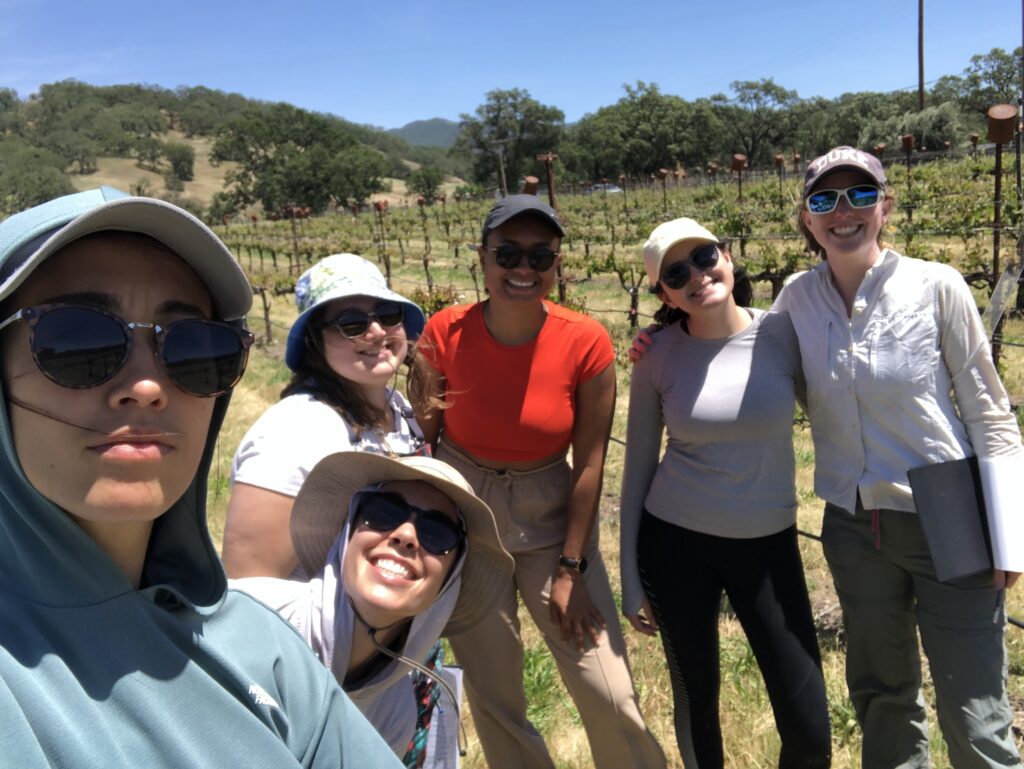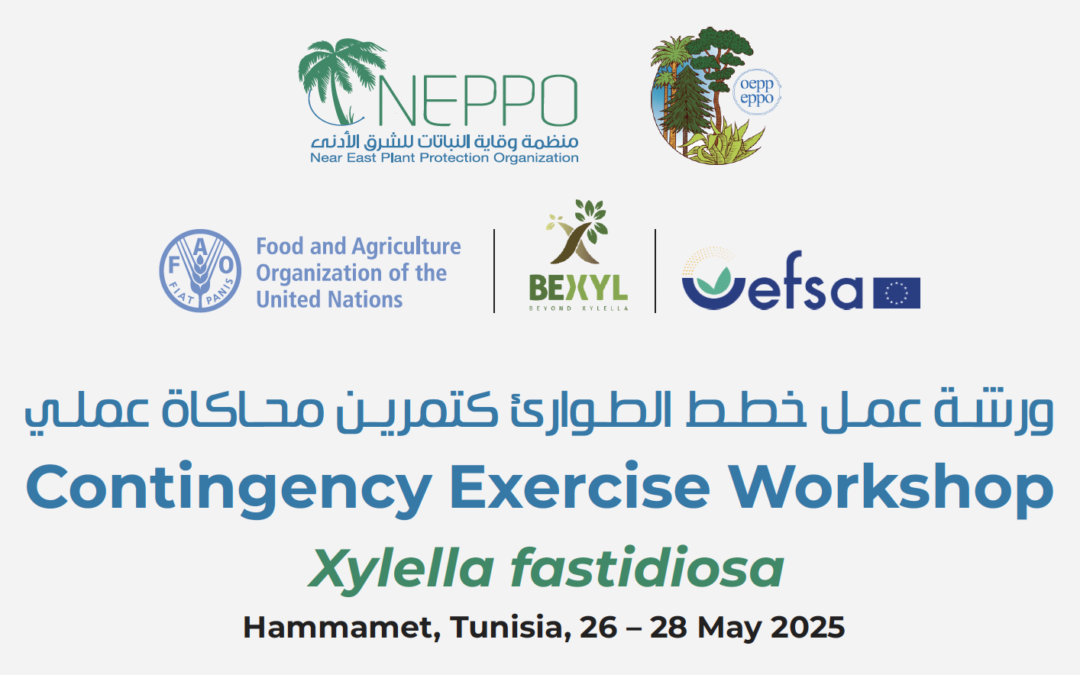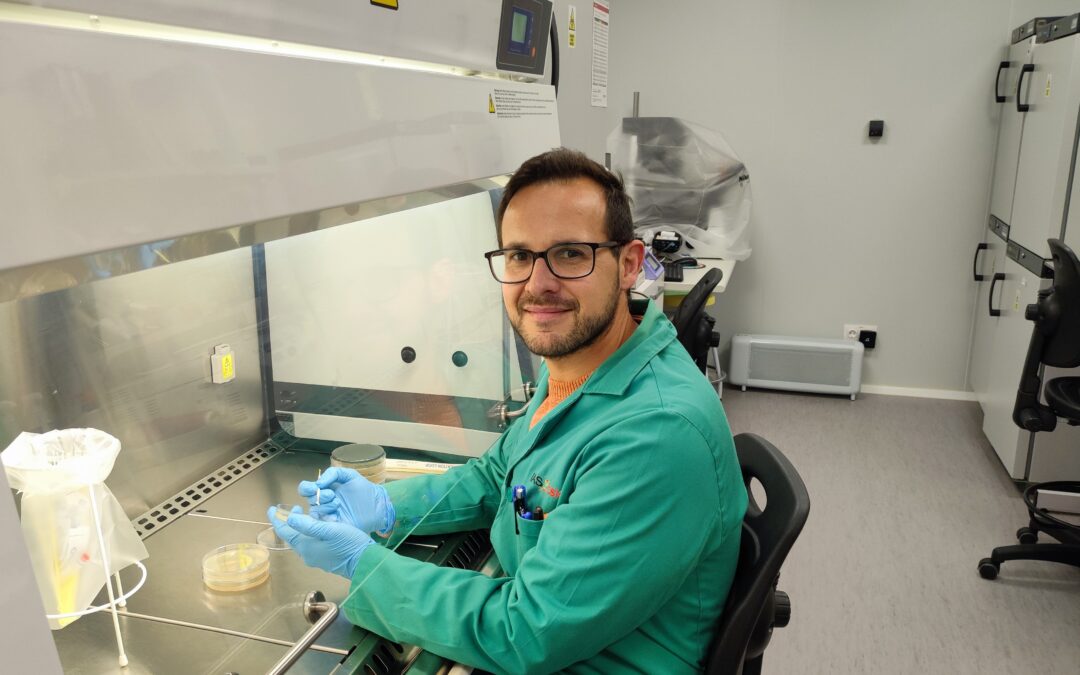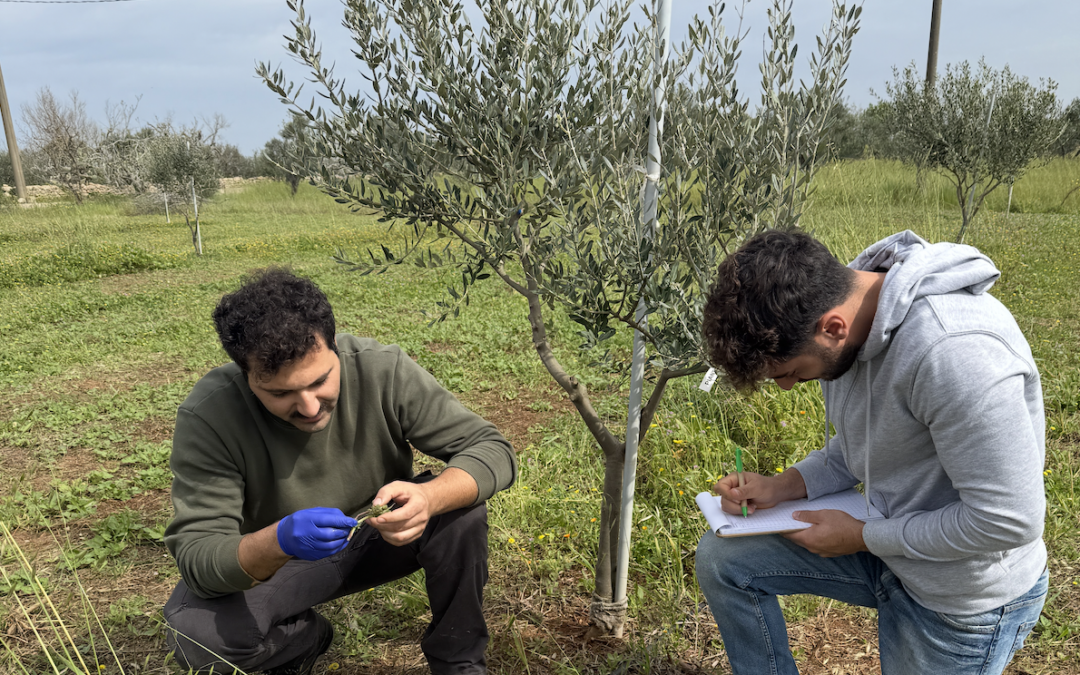Research requires the ability to be flexible and wear “many hats”, Monica Donegan told us in this interview. Adaptation – to different climates, environments and plant species – is also critical to Xylella fastidiosa‘s ability to spread across the globe. Monica Donegan is currently a PhD Candidate at the University of California, Berkeley. Studying in Rodrigo Almeida’s lab, she researches how distinct populations of Xylella fastidiosa adapt to local climates and different host plants, both in California and globally. Before her graduate studies, Donegan pursued solutions for citrus greening (Huanglongbing) as a research associate at Invaio Sciences.
Why plant health?
It took many years to narrow my interests because so many aspects of ecology and evolutionary biology fascinate me. My first undergraduate research experience was studying the evolution of monogamy in owl monkeys in Argentina. So, I’ve pivoted throughout my career. I gravitated towards plant pathology because it combines interesting evolutionary questions with a strong applied focus. It’s important to me that my research benefits growers and industries impacted by climate change. My time working in the private sector sharpened my dedication to applied science.
Which academic pathway did lead you to study Xf?
While at the University of Pennsylvania, my undergraduate thesis focused on plant physiology, specifically the evolution of C4 photosynthesis in various grass species. While I enjoyed plant biology, I felt pulled towards microbiology as I read about plant-microbe interactions–both pathogenic and commensal–that strongly influence plant health. I later joined an ag-tech startup in Boston, where I researched solutions to citrus greening caused by the bacterium Liberibacter asiaticus. There, I started doing more computational biology and data science and enjoyed that research aspect. As I considered PhD programs, researching Xf in Dr. Almeida’s lab offered a great opportunity to learn about an increasingly important plant pathogen and improve my computational skills.
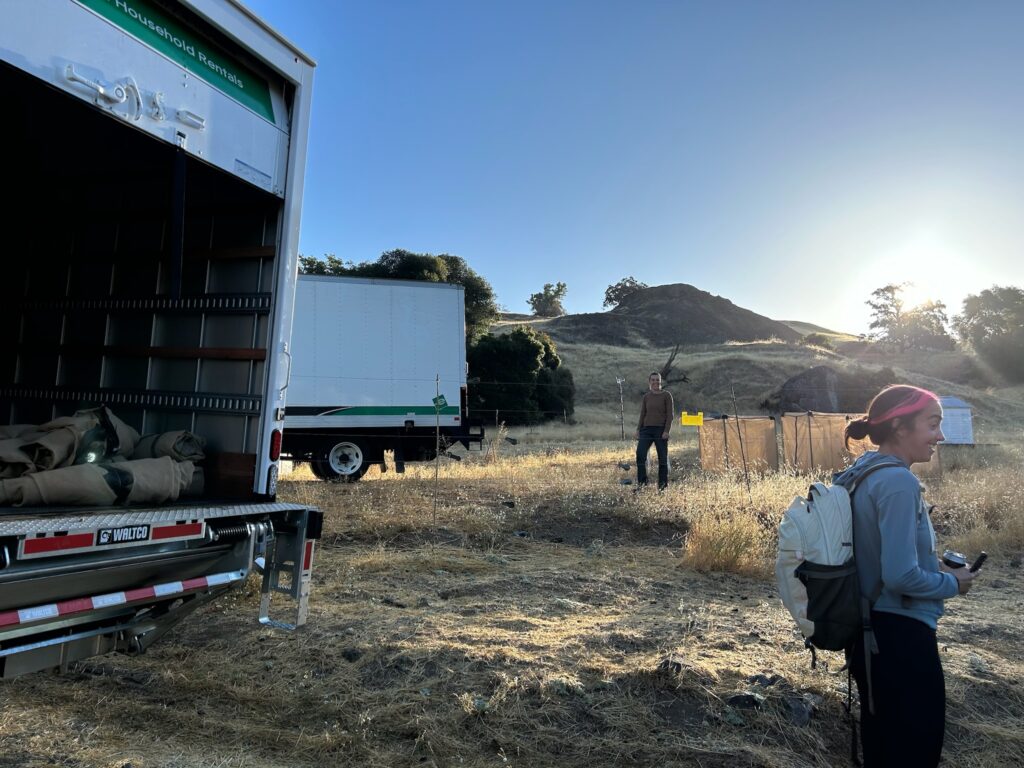
Which questions on X. fastidiosa do you want to answer with your thesis?
The central question of my thesis is: are genetically distinct populations of X. fastidiosa adapted to distinct climates? X. fastidiosa is sensitive to winter temperatures, so the global range of this pathogen will likely shift under climate change. However, many of the models predicting range shifts assume that all Xf is the same – that is, all populations have the same sensitivity to winter temperatures. While we know there are many genetically distinct populations of Xf across the globe, we do not currently understand biological differences when it comes to climate tolerance. Understanding these differences is key for making quarantine decisions after an introduction event.
What are the main results?
I recently published an article with many great collaborators using a herbarium specimen to discover multiple introductions of Xf into California. That highlighted that distinct populations are causing Pierce’s disease of grapevine on the West Coast of the US. Through a multi-year field trial in a colder climate within California, I found that strains from these distinct West Coast populations differ in winter tolerance; Northern California’s “local” strain survives the winter better than the Southern strain. Currently, I am pursuing greenhouse studies to understand the evolutionary trade-offs between these locally adapted strains and employ bioinformatic methods to pinpoint the genetic basis of winter tolerance. My work highlights the importance of leveraging population-level differences in informing plant pathogen policy decisions. I also investigated potential convergent evolution during host adaptation. There were two independent instances–in Italy and in Brazil–where Xf shifted from coffee to olive. Based on novel genomic data, my results indicate these two host shifts occurred via distinct genetic solutions. This study is important for understanding the genetic basis of host specialisation.
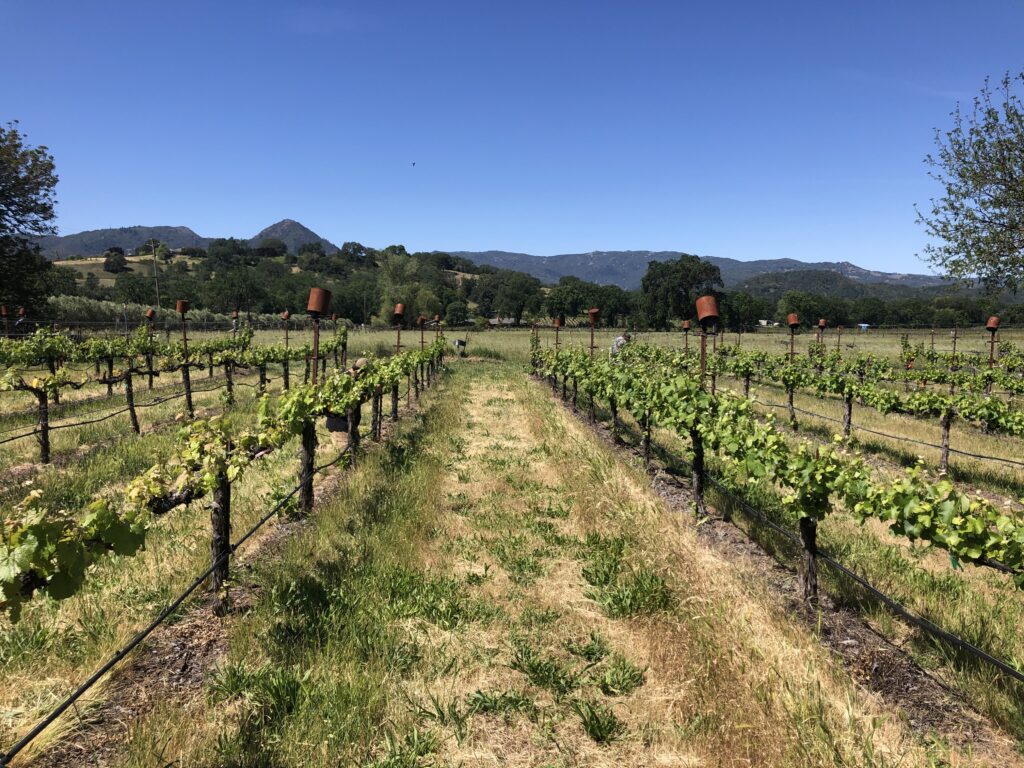
What have been the main obstacles in your research?
For starters, I began my PhD in 2020. Kickstarting my research during the pandemic was a challenge. Recently, I have encountered many logistical challenges in completing field work with many plants. It is not easy to grow and maintain hundreds of sick grapevines in the greenhouse, transport them to field sites across the state, and keep track of thousands of samples from multiple experiments.
How did you manage to hurdle them?
I’ve learned to wear many hats during my PhD – truck driver, plant caretaker, data scientist, among others. I’ve asked for help from many generous people, and my lab colleagues have been instrumental in successful field seasons. I also mentored many undergraduate students from Berkeley and summer interns from various universities in France; they all have made great contributions to this work.
What is your plan after the thesis?
I still have another year and a half to go, so I am concentrating on finishing and publishing my work. I plan to continue researching the evolutionary trajectories of plant pathogens.
